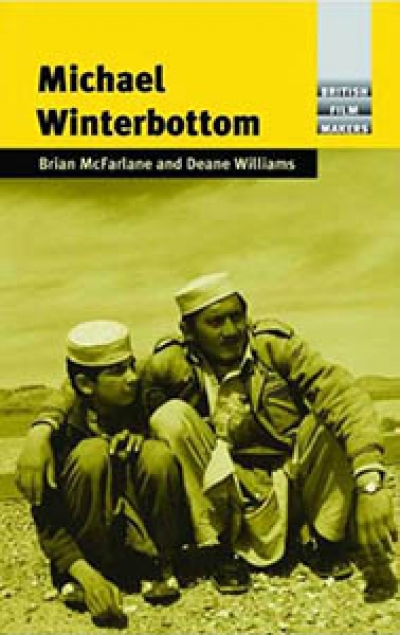ABR Arts
One morning in 2004, an Aboriginal man named Cameron Doomadgee was arrested for swearing at a police officer; forty-five minutes later he lay dead on the floor of his cell. Something had gone badly wrong, though the white senior sergeant on duty, the towering Chris Hurley, denied he was in any way at fault.
... (read more)The initial idea was for a new front door at the National Gallery of Australia. At least that is how Ron Radford, director of the Gallery, presented it to the one thousand or so guests in his remarks at the official opening of Andrew Andersons’ and PTW Architects’ Stage One ‘New Look’ at the NGA on Thursday, 30 September. Clearly, for the money involved and ...
So Patrick White’s most flamboyant novel (with the possible exception of The Twyborn Affair) has been brought to the cinema, after the usual longueurs and fiscal frights. Director Fred Schepisi and his scriptwriter, Judy Morris, have tamed the long and somewhat unwieldy beast that won White the Nobel Prize in 1973. Lovers of the novel will miss certain sc ...
Whereas the miniseries, most often based on revered literary texts, has been a staple of British television for fifty years, I could count on the fingers of a dismembered hand its Australian counterparts. In fact, the miniseries in general, as distinct from serials that run for a longer or shorter ...
... (read more)Directed by John Boulting in 1947, the original film version of Graham Greene’s thriller Brighton Rock is as honourable an adaptation as anyone could want. The plot may be simplified, but the essentials are all there (Greene himself co-wrote the script), and so is the cheery, grimy atmosphere of a mid-century British seaside resort, captured on location. There are two unforgettable performances, by Richard Attenborough as ‘Pinkie’, the psychopathic teenage gangster with a strangely pure belief in the reality of hell; and by Hermione Baddeley as Ida Arnold, the tart-with-a-heart who vows to bring Pinkie to justice.
... (read more)'The tyranny of text? Different readings at the Melbourne International Arts Festival' by John Rickard
Different readings at the Melbourne International Arts Festival
by John Rickard
In October, Brett Sheehy’s Melbourne International Arts Festival presented, with a certain relish, I suspect, two productions that represent opposite ends of a dramatic spectrum of current concern to those working in theatre. Heiner Goebbels’s S ...
Why on earth should Australian filmmakers want to try replicating Hollywood? No one can do Hollywood as well as Hollywood can, and the attempts to emulate it have usually, perhaps inevitably, led to flavourless or otherwise misbegotten enterprises. I know that this is the era of international co-productions, and that where the money comes from is undoubtedly influential, but where the creative personnel come from is surely still more so. I want to argue for the cultural significance of the small-scale filmmaking that doesn’t depend on US funding and thereby isn’t subject to the sorts of compromise that such involvement may entail.
... (read more)My heart sank when I heard that John Hillcoat was to direct a film of Cormac McCarthy’s novel The Road (2006), one of the more terminally grim performances in recent modern fiction. It is the story of a little boy who roams the post-nuclear devastated earth in the company of his father, while the world draws to an end amid murder, rape, cannibalism, and abysses of corruption – an inferno of a world, one of the war of all against all.
... (read more)I hesitated before deciding to see Summer of the Seventeenth Doll at La Boite in Brisbane this year. Revivals, even under ideal circumstances, can be chancy. The author, Ray Lawler, had reservations about the presentation of his signature work in the round, and so did I. More than fifty years had passed since he wrote it and since I saw it performed behind a conventional proscenium arch in Brisbane, with Lawler himself playing Barney. A story about manual cane-cutters would seem to my children as remote in time and place as one about stokers on a steamboat would have to me, when I first saw the play. Then, there were few, if any, mechanical cane harvesters. There was still plenty of work for rural, manual workers. These were hard, strong men who bankrolled themselves in the season in order to take their leisure afterwards in the big smoke: not just cane-cutters but also shearers, drovers, fencers, fruit pickers and contract miners in Mount Isa and Kalgoorlie and Broken Hill and other distant places.
... (read more)

